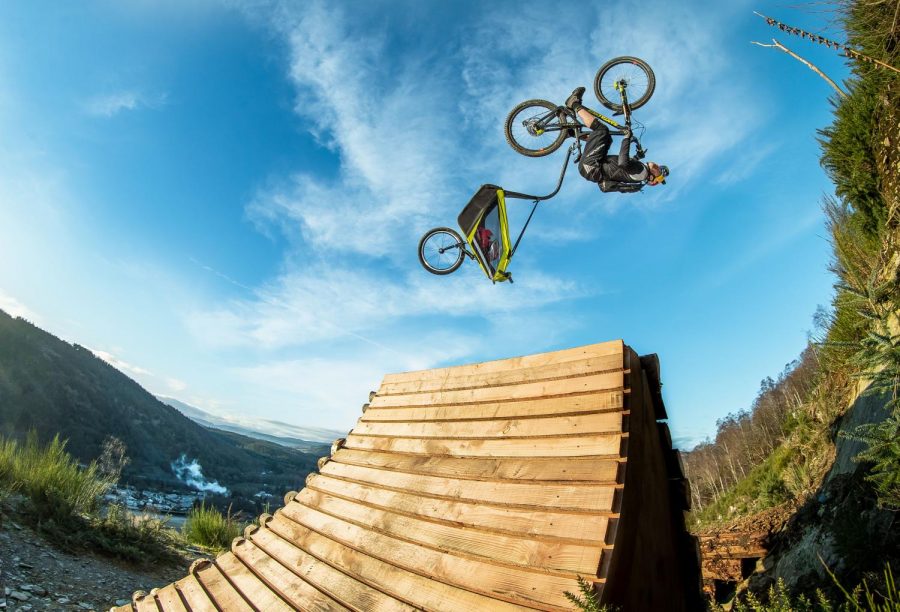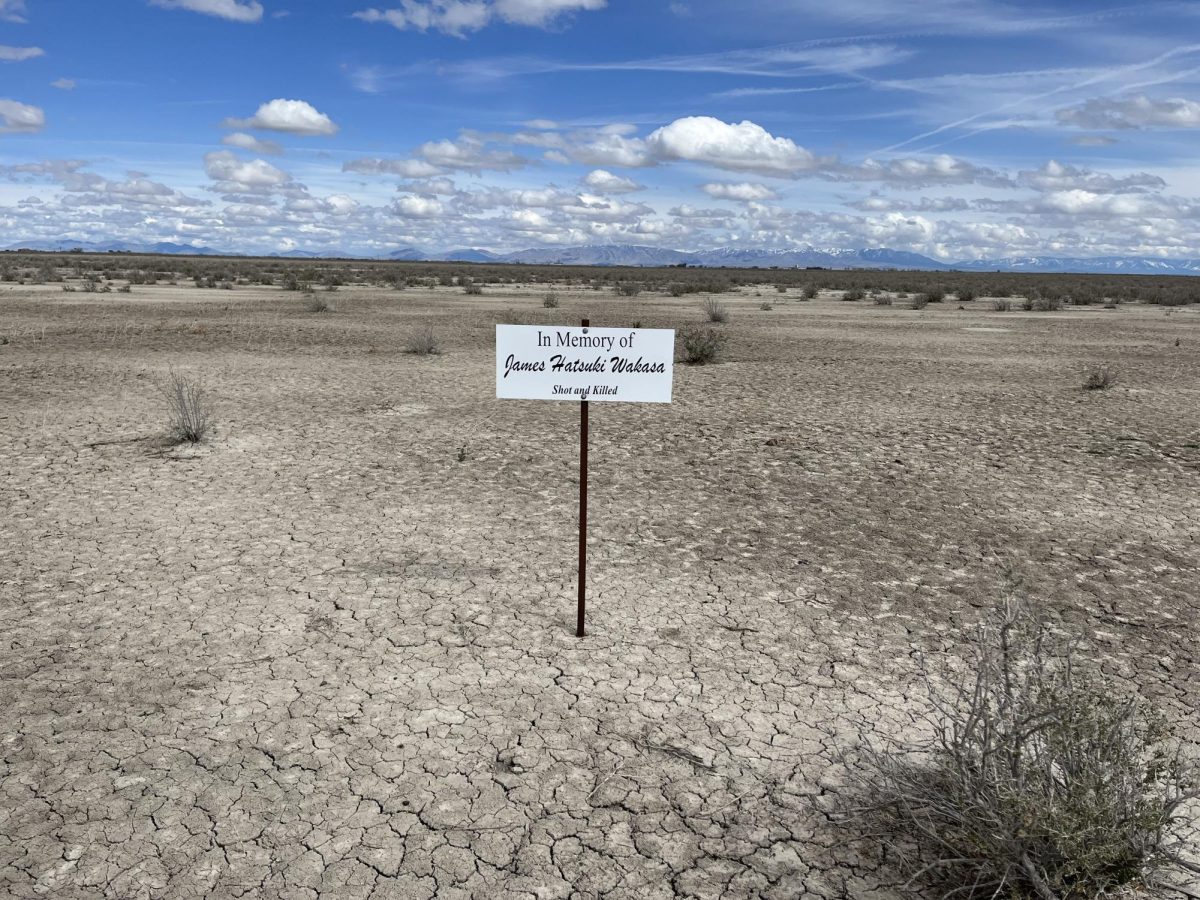Banff Film Festival Celebrates Sports, Nature and More
February 25, 2020
Welcome to Banff
A world-class skier glides and flips across the rooftops of a ski lodge. An old-school rock climber explores the rapidly growing sport of speed climbing in anticipation of climbing’s debut in the 2020 Olympics. Two gay women challenge the status quo in a conservative Colorado town through stromboli and mountain biking. These films and 34 others are making their way around the world as part of the Banff Centre Mountain Film and Book Festival’s World Tour.
For the 29th year now, the University of Utah hosted this event at Kingsbury Hall. The films come in all varieties — from films three minutes to 47 minutes, documentaries to short narratives, films about adventures to the South Pole, international slacklining tips, the “Potato King” in Peru, whitewater kayaking as therapy for PTSD and much more. Among all these films, two commonalities are the outdoors and a passion for adventure, but a healthy dose of adrenaline and impressive athleticism tend to seep into most of these films as well.
This year, Banff is touring films from its 44th annual festival. The festival itself is now a nine-day event in Banff, Alberta, where audiences vote for the best of the best among all these films. Guests and speakers come and present for attendees, and there is now a book competition and a photo essay competition as well. Then, the final film selections are sent on a world tour across about 550 locations in 50 countries. Here in Salt Lake City, the U’s Outdoor Adventures Program takes the lead in organizing this event and bringing it to campus year after year.
Of 37 films on tour, nine were shown on the first night at Kingsbury Hall, Feb. 18.
The Films of 2019
“Danny Daycare” opened the night with a short four-minute narrative film in which Danny MacAskill sets off on a stunt-filled biking trip with a small child in tow. MacAskill, an iconic modern trials bicyclist, performs incredible feats — leaping roots and logs in a forest, performing aerial flips and twists, balancing along the guard rail of a bridge and even climbing with the bicycle to the top of a small mountain. All the while, the bike trailer attached behind bounces and swings comically.
“A Nordic Skater” introduces the niche sport of Nordic skating through the married duo Per and Sanna Sollerman. The short documentary depicts cross-country expeditions as the two skate across beautiful expanses of black ice on Nordic rivers. A quiet and contemplative film, it dwells on the freedom and beauty of the outdoors and the niche activities that humans develop to engage with the natural world.
“Opening the Earth: The Potato King” stuck out among all these other films, documenting one indigenous community of potato farmers high in Peru’s Andes. One man, Julio Hancco, spends his days cultivating over 400 species of potato. The film explores this man’s dedication to his farm — particularly as he grows older and looks for a successor — as well as the attitudes of various other community members that stay in the region or leave for the urban life of the cities.
“Spectre Expedition – Mission Antarctica” is the documentary of three men as they battle the rugged environment of the South Pole in the pursuit of climbing one of the most remote peaks on Earth: Spectre. Using kites and skis to glide across the frozen landscape, it is a story about determination and cleverly overcoming the challenges of the unrelenting Antarctic landscape.
“Camel Finds Water” was my personal favorite of the evening. The film artistically documents Trevor Gordon’s process of bringing an old ruined boat found in a field back to life and back to the ocean for a cold-water surfing trip. Unlike many of the other films, “Camel Finds Water” takes a relatively unimpressive story of remodeling a boat and turns it into something delightful with clever filming, unique graphics and a comedic brand of storytelling.
“The Long River Home” follows three men as they conquer 80 rapids in the Grand Canyon over two weeks. With beautiful shots of nature and impressive feats of whitewater kayaking, the film is exhilarating. But at the film’s heart, “The Long River Home” explores how nature and adventure are outlets for coping with disability. All three men are military veterans, one blind after an accident, one missing both legs after his tour and the third coping with severe PTSD.
“Life of Pie” tells the story of Jen Zeuner and Anne Keller, two married women who started a new life in Fruita, Colorado, decades ago. Now their pizza parlor has been adopted as a progressive and accepting heart in the midst of this conservative town, and they have kindled an emerging scene of mountain biking in the lands around Fruita.
“REEL ROCK 13: Up to Speed” covers a topic particularly significant to many Salt Lake City locals: rock climbing. As we approach the 2020 Olympics, rock climbing will be featured for the first time as one of the events, and we have a local face — U alumnus Nathaniel Coleman — climbing for the USA. This film from REEL ROCK explores the up-and-coming yet controversial subculture of speed climbing, its origins and how it factors into the upcoming Olympic Games.
“Good Morning,” a short film of skiing stunts from the acrobatic Richard Permin, closed out the evening with flair. The talented Red Bull athlete soars across the snowy rooftops of the Avoriaz lodge in the French Alps, skiing up walls and downstairs, flipping from roof to roof and all around redefining the concept of ski slopes.
Ultimately, the variety of styles, athletic disciplines and themes in this lineup speaks to our passion as humans for the outdoors and our love of adrenaline. As amazing as these films can get, it is an equally amazing feat how Banff brings together producers and athletes across the globe to create this art. As students, it falls on us to watch and appreciate these films to encourage continued investment in nature.







